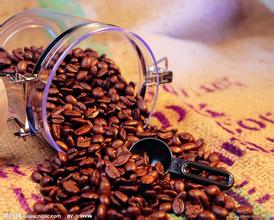The processing method and Flavor description of Rwandan Coffee introduction to Fine Coffee in producing area
Rwanda's economy is dominated by agriculture. The population engaged in agriculture and animal husbandry accounts for 92% of the country's population. The main cash crops are coffee, tea and cotton. Because it is an agricultural and animal husbandry country, coupled with the loss of many young workers caused by the genocide in 1994, it is a huge blow to a country that is not already rich, and Rwanda is still a backward country. After the civil war, Rwanda has intensified its development in the cultivation and trade of coffee. In recent years, the Rwandan government has also taken positive measures to set up coffee production cooperatives in various places to give technical guidance and financial support to farmers. It is expected that the domestic economic development can be promoted to a certain extent through the coffee industry. Because of the excellent performance of Rwandan coffee in recent years, it is becoming more and more popular in the international market.
Rwanda has been growing coffee since colonial times. Although the crops are mainly coffee, the quality of coffee produced in Rwanda is not outstanding, and its status in the coffee world is low, and few people pay attention to it. Most of the coffee varieties grown in Rwanda are bourbon. Rwanda, known as the "country of a thousand hills", has a high-altitude mountain environment, fertile volcanic soil and abundant precipitation, and has a climate conducive to the growth of coffee trees. The advantages of varieties and excellent natural conditions should have produced high-quality coffee, but why the quality of its coffee performance is not satisfactory? The reason lies in the later stage of processing. Improper handling will reduce the quality of coffee and sacrifice a lot of good flavor in vain. Harvesting, planting, processing, grading, transportation and other links will directly affect the quality of raw coffee beans, in which the lack of control in one link will become a stumbling block to making good coffee. In 1999, 220 coffee growers formed a guild in the Malaba area (formerly part of Butare province) to solve the disease. Among the guild members, many farmers were separated from their loved ones by the 1994 mass massacre, while some husbands were jailed or were taken to the traditional Gacaca Court (gacaca) to face trial on charges of participating in the massacre. They named the guild "Abau Zam Gambi" (Abahuzamugambi), which means "people who work together to achieve their goals" in Rwandan. Farmers hope that by setting up this association, they will be able to work directly with Geely's exporters instead of peeling layers of skin through intermediary transportation companies, so as to increase profits. Farmers distribute their profits and spend them on tools, fertilizers and seeds to increase production.
In 2000, the Mayor of Malaba requested development assistance from the National University of Rwanda (UNR), which is located near the city of Butare, and the following year, the National University of Rwanda assisted in the establishment of the Joint strengthening Rwanda Agricultural Partnership (PEARL). The PEARL project is also supported by several organizations: the United States Agency for International Development (USAID), Michigan State University, Texas A & M University, and many other Rwandan organizations, including the National University of Rwanda, the National Agricultural Laboratory (ISAR) and the Gejali Institute of Technology Management (KIST). In February 2001, PEARL began to work with Abauzam Gamby to improve the quality of coffee to meet the standards of the American professional coffee market, and then sell the coffee to the United States.

Important Notice :
前街咖啡 FrontStreet Coffee has moved to new addredd:
FrontStreet Coffee Address: 315,Donghua East Road,GuangZhou
Tel:020 38364473
- Prev

The grade planning of Kenyan coffee introduces several ways of handling Kenyan coffee.
Kenyan coffee beans the Kenyan government takes the coffee industry very seriously, where it is illegal to cut down or destroy coffee trees. Kenyan coffee buyers are world-class high-quality coffee buyers, and no other country can grow, produce and sell coffee on a continuous basis like Kenya. All coffee beans are first made by the Kenya Coffee Commission (CoffeeBoardofKenya, CB for short)
- Next

Introduction of fine coffee beans with the characteristics of Colombian coffee culture and variety producing areas
Colombian Coffee-produced in Colombia, roasted coffee beans emit sweet aromas, with sweet acidity and moderate bitterness, and are often used in high-grade blended coffee because of the right concentration. Colombian coffee has a bitter experience, clear and astringent as life, while bitterness is necessary in life, stopping at the end of the tongue.
Related
- Detailed explanation of Jadeite planting Land in Panamanian Jadeite Manor introduction to the grading system of Jadeite competitive bidding, Red bid, Green bid and Rose Summer
- Story of Coffee planting in Brenka region of Costa Rica Stonehenge Manor anaerobic heavy honey treatment of flavor mouth
- What's on the barrel of Blue Mountain Coffee beans?
- Can American coffee also pull flowers? How to use hot American style to pull out a good-looking pattern?
- Can you make a cold extract with coffee beans? What is the right proportion for cold-extracted coffee formula?
- Indonesian PWN Gold Mandrine Coffee Origin Features Flavor How to Chong? Mandolin coffee is American.
- A brief introduction to the flavor characteristics of Brazilian yellow bourbon coffee beans
- What is the effect of different water quality on the flavor of cold-extracted coffee? What kind of water is best for brewing coffee?
- Why do you think of Rose Summer whenever you mention Panamanian coffee?
- Introduction to the characteristics of authentic blue mountain coffee bean producing areas? What is the CIB Coffee Authority in Jamaica?

